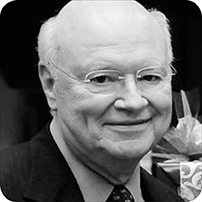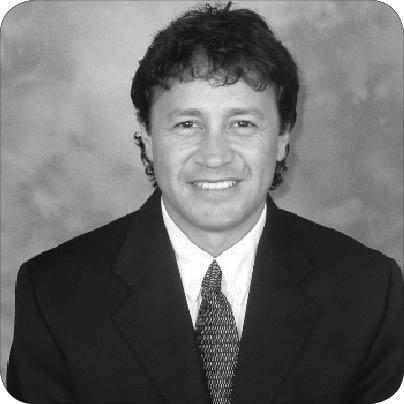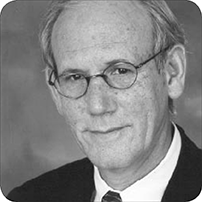|
Leadership in Organizations |
| Friday, May 23, 2014 |
| 10:30 AM–11:20 AM |
| W190a (McCormick Place Convention Center) |
| Area: OBM; Domain: Theory |
| Instruction Level: Basic |
| CE Instructor: Jon E. Krapfl, Ph.D. |
| Chair: Mark P. Alavosius (University of Nevada, Reno) |
| JON E. KRAPFL (Retired from the Mason School of Business at the College of William & Mary) |
 Jon E. Krapfl has spent an entire career on the intersection of business and psychology. After operating a construction business in the 1960s, he earned a Ph.D. in clinical psychology from the University of Missouri in 1967. By 1969, he began directing training programs first at Drake University, and then as chair at West Virginia University, and as director of the Systems Center at the University of Houston. He also developed a number of treatment centers for the states of Missouri, Iowa, and West Virginia. From 1980-1997, Dr. Krapfl was president of Corporate Behavior Analysts, Inc., a consulting firm of behavioral psychologists with a worldwide client base, headquartered in Chicago, IL. After retiring for several years, he became associate dean and chief operating officer of the Mason School of Business at the College of William & Mary, a position from which he retired in 2012. His primary interests have been in business strategy, business cultures, leadership, and instruction in higher education. Jon E. Krapfl has spent an entire career on the intersection of business and psychology. After operating a construction business in the 1960s, he earned a Ph.D. in clinical psychology from the University of Missouri in 1967. By 1969, he began directing training programs first at Drake University, and then as chair at West Virginia University, and as director of the Systems Center at the University of Houston. He also developed a number of treatment centers for the states of Missouri, Iowa, and West Virginia. From 1980-1997, Dr. Krapfl was president of Corporate Behavior Analysts, Inc., a consulting firm of behavioral psychologists with a worldwide client base, headquartered in Chicago, IL. After retiring for several years, he became associate dean and chief operating officer of the Mason School of Business at the College of William & Mary, a position from which he retired in 2012. His primary interests have been in business strategy, business cultures, leadership, and instruction in higher education. |
| Abstract: Businesses are crying out for leadership. Businesses need managers and executives to guide them through an environment that is high risk and in flux. Changing markets and business environments require rapid and creative responses and the taking of measured risks to achieve positive results. Higher education has failed miserably at preparing leaders because of its traditional concepts of both leadership and instruction. One cannot learn leadership from a book any more than one can learn golf that way. The problem is exacerbated by the fact that our modern regimented society prepares children to be less, not more, capable of either accepting responsibility or taking a leadership role. This is paper will focus on both what contemporary leaders must do and how they can be prepared to do it. |
| Target Audience: Psychologists, behavior analysts, graduate students, and anyone interested in leadership in organizations. |
| Learning Objectives: At the conclusion of the event, participants should be able to (1) Explain why leadership must be defined in terms of outcomes rather than attributes; (2) Explain enabling in a leadership context; (3) Through a leadership process, create an environment that supports innovation and creativity. |
| Keyword(s): Business leadership, Leadership Seminar |
|
| |
| |
|
Behavioral Engineering: Step Change in the Integration of Management Across Critical Functions in a Global Energy Services Company |
| Friday, May 23, 2014 |
| 1:00 PM–1:50 PM |
| W190a (McCormick Place Convention Center) |
| Area: OBM; Domain: Theory |
| Instruction Level: Intermediate |
| CE Instructor: Mark P. Alavosius, Ph.D. |
| Chair: Ramona Houmanfar (University of Nevada, Reno) |
| JUAN CARLOS LOPEZ (Schlumberger Limited), Mark P. Alavosius (University of Nevada, Reno, and Praxis 2), Amir Nessim (Schlumberger Limited), Chris Fox (Schlumberger Limited), Timothy D. Ludwig (Appalachian State University) |
 Juan Carlos Lopez is a civil engineer and earned his degree from Universidad Nacional de Colombia. Mr. Lopez has 25 years of engineering, management, and leadership experience in the oil and gas industry. He joined Schlumberger Limited, the leading oilfield services company in 1999 as QHSE (Quality, Health, Safety, and Environment) manager and led the implementation of the corporate management system in various countries in Latin America and the Middle East. He led development of an innovative behavior-based program resulting in a significant reduction of injuries and losses in the biggest and most complex operational oilfield services areas. Mr. Lopez serves as the behavioral engineering subject matter expert at Schlumberger and received the “Performed by Schlumberger CEO Award” in 2012 for creating and implementing a Global Journey Management Center. This has led the organization to a step change in driving safety. This award represents the highest recognition in the company. Mr. Lopez also received the Gold Award in 2002 for being part of the Injury Prevention Program team. He is now vice president of quality, health, safety, and environment with global responsibility for the Integrated Project Management Segment. Mr. Lopez is leading the development of methodology to apply behavioral engineering to reduce human error across the Schlumberger operations. Schlumberger (SLB) leads its industry as the world's largest oilfield services company in terms of revenue and market capitalization. SLB employs about 120,000 people worldwide representing more than 140 nationalities and working in more than 85 countries. Schlumberger provides the industry’s widest range of products and services from exploration through production. Juan Carlos Lopez is a civil engineer and earned his degree from Universidad Nacional de Colombia. Mr. Lopez has 25 years of engineering, management, and leadership experience in the oil and gas industry. He joined Schlumberger Limited, the leading oilfield services company in 1999 as QHSE (Quality, Health, Safety, and Environment) manager and led the implementation of the corporate management system in various countries in Latin America and the Middle East. He led development of an innovative behavior-based program resulting in a significant reduction of injuries and losses in the biggest and most complex operational oilfield services areas. Mr. Lopez serves as the behavioral engineering subject matter expert at Schlumberger and received the “Performed by Schlumberger CEO Award” in 2012 for creating and implementing a Global Journey Management Center. This has led the organization to a step change in driving safety. This award represents the highest recognition in the company. Mr. Lopez also received the Gold Award in 2002 for being part of the Injury Prevention Program team. He is now vice president of quality, health, safety, and environment with global responsibility for the Integrated Project Management Segment. Mr. Lopez is leading the development of methodology to apply behavioral engineering to reduce human error across the Schlumberger operations. Schlumberger (SLB) leads its industry as the world's largest oilfield services company in terms of revenue and market capitalization. SLB employs about 120,000 people worldwide representing more than 140 nationalities and working in more than 85 countries. Schlumberger provides the industry’s widest range of products and services from exploration through production.
|
| Abstract: This session will trace the history of Schlumberger Limited (SLB) from its inception to its current status as the world’s leading supplier of technology, integrated project management, and information solutions to customers working in the oil and gas industry worldwide. SLB employs about 120,000 people representing more than 140 nationalities and working in more than 85 countries. The organization is committed to technology innovation, research, and engineering to provide the level of value to customers. The SLB chief executive officer has established a blueprint for corporate directions that includes emphasis on behavior change related to teamwork, innovation, and engagement. This talk provides an update on recent work across geo-markets and business segments and illustrates the integration of engineering and behavior science. |
| Target Audience: Psychologists, behavior analysts, graduate students, and anyone interested in learning about integrating engineering and behavior analysis. |
| Learning Objectives: At the conclusion of the session, participants should be able to: (1) Describe the key themes articulated by the leaders of this corporation that drive innovation; (2) Compare engineering and behavioral approaches to managing work practices across a global enterprise and outline how engineering and behavioral science converge to enable progress; and (3) Outline the functions behavioral engineers might develop in promoting lasting behavior change across a global enterprise. |
| Keyword(s): Leadership Seminar |
|
| |
| |
|
Consumer Behavior Analysis and Cultural Change: Understanding and Addressing Environmental Concern |
| Friday, May 23, 2014 |
| 2:00 PM–2:50 PM |
| W190a (McCormick Place Convention Center) |
| Area: OBM; Domain: Basic Research |
| Instruction Level: Basic |
| CE Instructor: Gordon R. Foxall, Ph.D. |
| Chair: Mark P. Alavosius (University of Nevada, Reno) |
| GORDON R. FOXALL (Cardiff University) |
 Gordon Foxall is a distinguished research professor at Cardiff Business School, Cardiff University, where he directs the Consumer Behaviour Analysis Research Group (CBAR) He holds Ph.D.s in industrial economics and business (University of Birmingham) and in psychology (University of Strathclyde), and a higher doctorate (DSocSc) from the University of Birmingham. He is the author of more than 200 refereed papers and more than 20 books. He has held visiting appointments at the Universities of Michigan and Oxford. A fellow of the British Psychological Society (FBPsS) and the British Academy of Management (FBAM), he is an academician of the Academy of Social Science (AcSS). His research interests are in psychological theories of choice and their neuroeconomic underpinnings and in the explanation of consumer choice and the behavior of the marketing firm. He has published in journals including Journal of Consumer Research, Journal of the Academy of Marketing Science, Journal of the Experimental Analysis of Behavior, Behavioural Processes, The Behavior Analyst, Journal of Economic Psychology, Psychology and Marketing, and Journal of Business Research. His monograph, Interpreting Consumer Choice: The Behavioural Perspective Model was published in paperback by Routlege in 2013. Gordon Foxall is a distinguished research professor at Cardiff Business School, Cardiff University, where he directs the Consumer Behaviour Analysis Research Group (CBAR) He holds Ph.D.s in industrial economics and business (University of Birmingham) and in psychology (University of Strathclyde), and a higher doctorate (DSocSc) from the University of Birmingham. He is the author of more than 200 refereed papers and more than 20 books. He has held visiting appointments at the Universities of Michigan and Oxford. A fellow of the British Psychological Society (FBPsS) and the British Academy of Management (FBAM), he is an academician of the Academy of Social Science (AcSS). His research interests are in psychological theories of choice and their neuroeconomic underpinnings and in the explanation of consumer choice and the behavior of the marketing firm. He has published in journals including Journal of Consumer Research, Journal of the Academy of Marketing Science, Journal of the Experimental Analysis of Behavior, Behavioural Processes, The Behavior Analyst, Journal of Economic Psychology, Psychology and Marketing, and Journal of Business Research. His monograph, Interpreting Consumer Choice: The Behavioural Perspective Model was published in paperback by Routlege in 2013. |
| Abstract: Consumer behavior analysis employs explanatory variables honed in experimental analyses to understand complex human socio-economic behaviors that are not amenable to laboratory investigation. A synthesis of behavior analysis and consumer science, it involves both the behavioral economics of choice in the market place and--the subject of this talk--the interpretation of consumer behavior in natural settings that suggests solutions to pressing cultural concerns such as environmental despoliation through consumption. The paper examines three aspects of this problem: the nature of consumer behavior as a set of contingent activities, the nature of marketing response, and the opportunities for remedial action that follow from the interaction of consumer choice and the marketing firm. Translating what we have discovered through the experimental analysis of behavior into applicable solutions to social and economic problems requires a willingness to adapt our science to the demands of social technology, to recognize the complexities inherent in the reinforcement of complex behavior, and to make our unique approach to behavior--in this case, consumer behavior and marketing response--available to a broader community. The paper deals therefore with the pattern of reinforcement (consisting of both utilitarian and informational reward) that shapes consumer choice, the bilateral contingencies which integrate consumer and corporate behaviors, and the particular requirements of any program that seeks to redress the effects of over-consumption on the physical and social environment. An important subtheme will address what this kind of response to social and environmental concerns requires of behavior analysts. |
| Target Audience: Psychologists, behavior analysts, graduate students, and anyone interested in learning more about human soci-economic behaviors outside the laboratory |
| Learning Objectives: At the conclusion of the event, participants should be able to (1) Understand the pattern of bilateral contingency that binds consumers and providers in the process of productive exchange: (2) Appreciate how behavior analysis can increase our knowledge of environmental concerns and our preparedness to respond; and (3) Recognize the demands on both our science and our own behavior as behavior analysts if we are to make our work relevant to society. |
| Keyword(s): behavioral economics, consumer behavior, Leadership Seminar |
|
| |
| |
|
Using Behavioral Science in Marathon Petroleum to Impact the Industry, its Contractors, and Region |
| Friday, May 23, 2014 |
| 3:00 PM–3:50 PM |
| W190a (McCormick Place Convention Center) |
| Area: OBM; Domain: Applied Research |
| Instruction Level: Basic |
| CE Instructor: Ramona Houmanfar, Ph.D. |
| Chair: Timothy D. Ludwig (Appalachian State University) |
| KEVIN BOGARD (Marathon Petroleum) |
 Kevin Bogard is the general manager of Marathon Petroleum's Robinson Illinois Refinery. He has 25 years of experience with Marathon and has held many positions of escalating responsibility in technical, economic, and leadership positions. Mr. Bogard has worked at five different sites across Marathon's Refining Division where behavior-based safety programs were being used to shape the safety culture and drive performance to a point where "nobody gets hurt." He is focused on using the same scientific approaches used to drive the Robinson Refinery's personal safety performance that has achieved industry leading levels of performance, toward other key performance areas across the refinery. Kevin Bogard is the general manager of Marathon Petroleum's Robinson Illinois Refinery. He has 25 years of experience with Marathon and has held many positions of escalating responsibility in technical, economic, and leadership positions. Mr. Bogard has worked at five different sites across Marathon's Refining Division where behavior-based safety programs were being used to shape the safety culture and drive performance to a point where "nobody gets hurt." He is focused on using the same scientific approaches used to drive the Robinson Refinery's personal safety performance that has achieved industry leading levels of performance, toward other key performance areas across the refinery. |
| Abstract: Marathon Petroleum, Illinois Refining Division (IRD), adopted a behavioral science approach to its safety operations becoming one of the first sites accredited for its behavioral safety program by the Cambridge Center for Behavioral Studies (CCBS). With this success came the challenge to use behavioral science to impact the company, its contractors, and its region. Subsequently, Marathon's refining division now has three refining divisions' behavioral safety programs accredited by the Cambridge Center. The Illinois Refining Division led its contractors in adopting behavioral safety leading to nearly half of them receiving accreditation themselves. Evidence indicates that the contracting workforce adopts its behavioral safety best practices in other regional businesses as well. Therefore, the Illinois Refining Division has embarked on efforts to teach behavioral science to regional industry to broaden its impact. This talk will review the growth of behavioral science within Marathon Petroleum and its outreach efforts as well as introduce some new areas of application within other business systems. |
| Target Audience: Psychologists, behavior analysts, graduate students, and anyone interested in learning about a behavioral science approach to safety operations. |
| Learning Objectives: Forthcoming. |
| Keyword(s): behavioral science, Leadership Seminar, safety programs |
|
| |
| |
|
| Leadership Influence in Organizations and Society |
| Friday, May 23, 2014 |
| 4:30 PM–5:50 PM |
| W190a (McCormick Place Convention Center) |
| Area: OBM; Domain: Applied Research |
| Chair: Timothy D. Ludwig (Appalachian State University) |
| CE Instructor: Ramona Houmanfar, Ph.D. |
| Panelists: WILLIAM B. ABERNATHY (Southeastern Louisiana University, Aubrey Daniels International), DONALD A. HANTULA (Temple University), MARK P. ALAVOSIUS (University of Nevada, Reno) |
| Abstract: Leadership of the private sector affects socially significant practices inside (employees' health, safety, and financial wellbeing, etc.) and outside of organizations (e.g., consumer practices). By drawing upon their pioneering work in Organizational Behavior Management, panelists will provide comments regarding this theme of the Seminar on Leadership and Cultural Change. The panelists will discuss ways by which organizational leaders can promote stewardship and open opportunities for innovation while adjusting to growing social upheaval, technological advances, and environmental concerns, as well as crises in the global economy, health, education, and environment. It will address how behavior analysis finds common ground with other sciences by investigating the behavior of leaders who influence organizations and society. |
| Instruction Level: Basic |
| Target Audience: Psychologists, behavior analysts, graduate students, and anyone interested in organizational behavior management applied in the private sector. |
| Learning Objectives: At the conclusion of the presentation, participants should be able to (1) Describe the status of contemporary organizational practices and consider the impact behavior analysis has had on private sector; (2) Describe pathways to follow that advance evidence-based organizational technologies and the contributions offered by behavior analysis; and (3) Identify themes in society and culture at large that influence leaders of behavior analysis to apply our science to organizations. |
| WILLIAM B. ABERNATHY (Southeastern Louisiana University, Aubrey Daniels International) |
 Dr. William Abernathy received his doctorate in I/O Psychology from The Ohio State University and taught at Ohio University. He joined Edward J. Feeney and Associates, a consulting firm that specialized in performance improvement. As a consultant, he worked with Victoria Stations Restaurants, Security Pacific Bank, Sovran Bank, and the Franklin Mint. Dr. Abernathy founded his own consulting firm in 1981. Abernathy & Associates specialized in the implementation of organizationwide performance measurement and performance pay systems and worked with more than 170 client organizations in the U.S. Europe, Canada, and Central America. In 2004, he sold his company to Aubrey Daniels International and now assists in its client implementations. Dr. Abernathy developed and coordinates a new master’s degree in I/O Psychology at Southeastern Louisiana University. He is the author of The Sin of Wages, Pay for Profit, and Human Diagnostics. Dr. William Abernathy received his doctorate in I/O Psychology from The Ohio State University and taught at Ohio University. He joined Edward J. Feeney and Associates, a consulting firm that specialized in performance improvement. As a consultant, he worked with Victoria Stations Restaurants, Security Pacific Bank, Sovran Bank, and the Franklin Mint. Dr. Abernathy founded his own consulting firm in 1981. Abernathy & Associates specialized in the implementation of organizationwide performance measurement and performance pay systems and worked with more than 170 client organizations in the U.S. Europe, Canada, and Central America. In 2004, he sold his company to Aubrey Daniels International and now assists in its client implementations. Dr. Abernathy developed and coordinates a new master’s degree in I/O Psychology at Southeastern Louisiana University. He is the author of The Sin of Wages, Pay for Profit, and Human Diagnostics. |
| DONALD A. HANTULA (Temple University) |
 Donald Hantula is an associate professor of psychology and director of the Decision Laboratory at Temple University and associate editor of the Journal of Organizational Behavior Management. He earned his Ph.D. from the University of Notre Dame. His research includes behavior analysis, behavioral economics, human decision making in dynamic environments, and technological applications. He has previously held positions in occupational health promotion at The Johns Hopkins University School of Medicine, human resource management at King’s College, and management information systems at St. Joseph’s University. Dr. Hantula also was a visiting scholar at the University of Nevada, Reno. His research has appeared in American Psychologist, IEEE Transactions, the Journal of Applied Behavior Analysis, the Journal of Organizational Behavior Management, the Journal of Applied Physiology, and Organizational Behavior and Human Decision Process. His most recent book is Consumer Behavior Analysis: (A) Rational Approach to Consumer Choice written with Victoria Wells. Donald Hantula is an associate professor of psychology and director of the Decision Laboratory at Temple University and associate editor of the Journal of Organizational Behavior Management. He earned his Ph.D. from the University of Notre Dame. His research includes behavior analysis, behavioral economics, human decision making in dynamic environments, and technological applications. He has previously held positions in occupational health promotion at The Johns Hopkins University School of Medicine, human resource management at King’s College, and management information systems at St. Joseph’s University. Dr. Hantula also was a visiting scholar at the University of Nevada, Reno. His research has appeared in American Psychologist, IEEE Transactions, the Journal of Applied Behavior Analysis, the Journal of Organizational Behavior Management, the Journal of Applied Physiology, and Organizational Behavior and Human Decision Process. His most recent book is Consumer Behavior Analysis: (A) Rational Approach to Consumer Choice written with Victoria Wells. |
| MARK P. ALAVOSIUS (University of Nevada, Reno) |
 Mark Alavosius, Ph.D., received his BA in psychology from Clark University in 1976 and his MS (1985) and Ph.D. (1987) in psychology from the University of Massachusetts at Amherst. His efforts are in developing behavioral systems to improve organizational performance particularly in the areas of health and safety. These focus on behavior systems analysis, management practices, instructional design, incentives, and entrepreneurial behavior. He has been principal investigator on Small Business Innovation Research grants to develop and evaluate behavioral safety systems for small employers. He held faculty appointments at Western Michigan University, West Virginia University, and the University of Nevada. He has held senior leadership positions in organizations providing safety management services and support technologies to business and industry. He is an associate editor for the Journal of Organizational Behavior Management and member of the board of editors for Behavior and Social Issues. He was president of the Nevada Association for Behavior Analysis and is a trustee of the Cambridge Center for Behavioral Studies, chairperson of the CCBS commission on accreditation of corporate safety programs and content expert of the CCBS Environmental/Green solutions area. With more than 30 years of experience focused on behavioral approaches to work performance and occupational safety and more than 220 papers and conference presentations, Dr. Alavosius has a proven track record as a teacher, manager, small business owner, and researcher. Mark Alavosius, Ph.D., received his BA in psychology from Clark University in 1976 and his MS (1985) and Ph.D. (1987) in psychology from the University of Massachusetts at Amherst. His efforts are in developing behavioral systems to improve organizational performance particularly in the areas of health and safety. These focus on behavior systems analysis, management practices, instructional design, incentives, and entrepreneurial behavior. He has been principal investigator on Small Business Innovation Research grants to develop and evaluate behavioral safety systems for small employers. He held faculty appointments at Western Michigan University, West Virginia University, and the University of Nevada. He has held senior leadership positions in organizations providing safety management services and support technologies to business and industry. He is an associate editor for the Journal of Organizational Behavior Management and member of the board of editors for Behavior and Social Issues. He was president of the Nevada Association for Behavior Analysis and is a trustee of the Cambridge Center for Behavioral Studies, chairperson of the CCBS commission on accreditation of corporate safety programs and content expert of the CCBS Environmental/Green solutions area. With more than 30 years of experience focused on behavioral approaches to work performance and occupational safety and more than 220 papers and conference presentations, Dr. Alavosius has a proven track record as a teacher, manager, small business owner, and researcher. |
| Keyword(s): Leadership Seminar, OMB, private sector |
|
| |